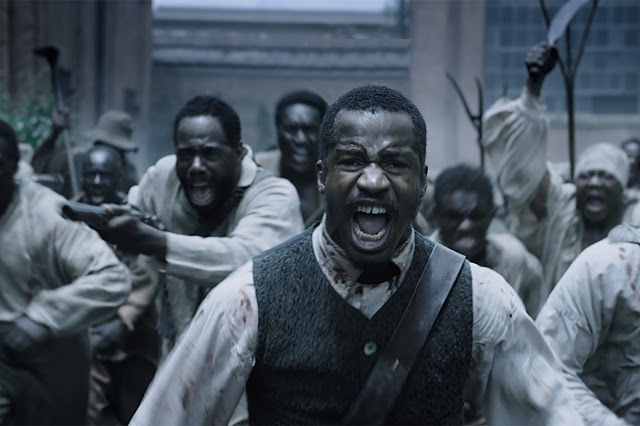The Birth of a Nation: Black Men Fighting Back, Then and Now
No movie exists entirely within its own bubble, but the clamor surrounding The Birth of a Nation is so loud, it’s threatened to silence the actual film. When it premiered in January at the Sundance Film Festival, The Birth of a Nation was hailed not only as a good movie—it won both the Grand Jury Prize and the Audience Award—but as a timely and potent corrective to the monochrome of the Academy Awards, which were squirming through the second consecutive year of #OscarsSoWhite. But in August, reports surfaced that Nate Parker, the film’s writer-director as well as its star, had been charged with rape in 1999 along with Jean McGianni Celestin, who shares a story credit with Parker. In 2001, Parker was acquitted (Celestin was convicted, but the verdict was overturned on appeal); then, in 2012, his accuser killed herself. This tragedy—combined with the fact that the film features a rape whose accuracy has been questioned—ignited a firestorm that has engulfed the picture, resulting in boycotts, short-circuited interviews, and a marketing campaign that could charitably be described as tentative. Both the breadth and the volume of the rhetoric surrounding The Birth of a Nation‘s release make it challenging to look past the movie’s context to see its content.
Yet here we are. By which I mean, my job as a film critic is not to analyze The Birth of a Nation’s Best Picture prospects, nor is it to reconcile Nate Parker the person with Nate Parker the artist. (It is certainly not to determine the validity of the sexual assault allegations against Parker or to assess the prospect of causation with the alleged victim’s suicide, tasks for which I am wholly unqualified.) It is instead to evaluate this movie as, well, a movie. And on that score, perhaps the most interesting thing about The Birth of a Nation is how ordinary it is. What we have here is a prototypical biopic, alternately stimulating and stultifying. You’ve seen movies like this before, which means you are much more likely to remember this one for what it represents than for what it contains. Read More

